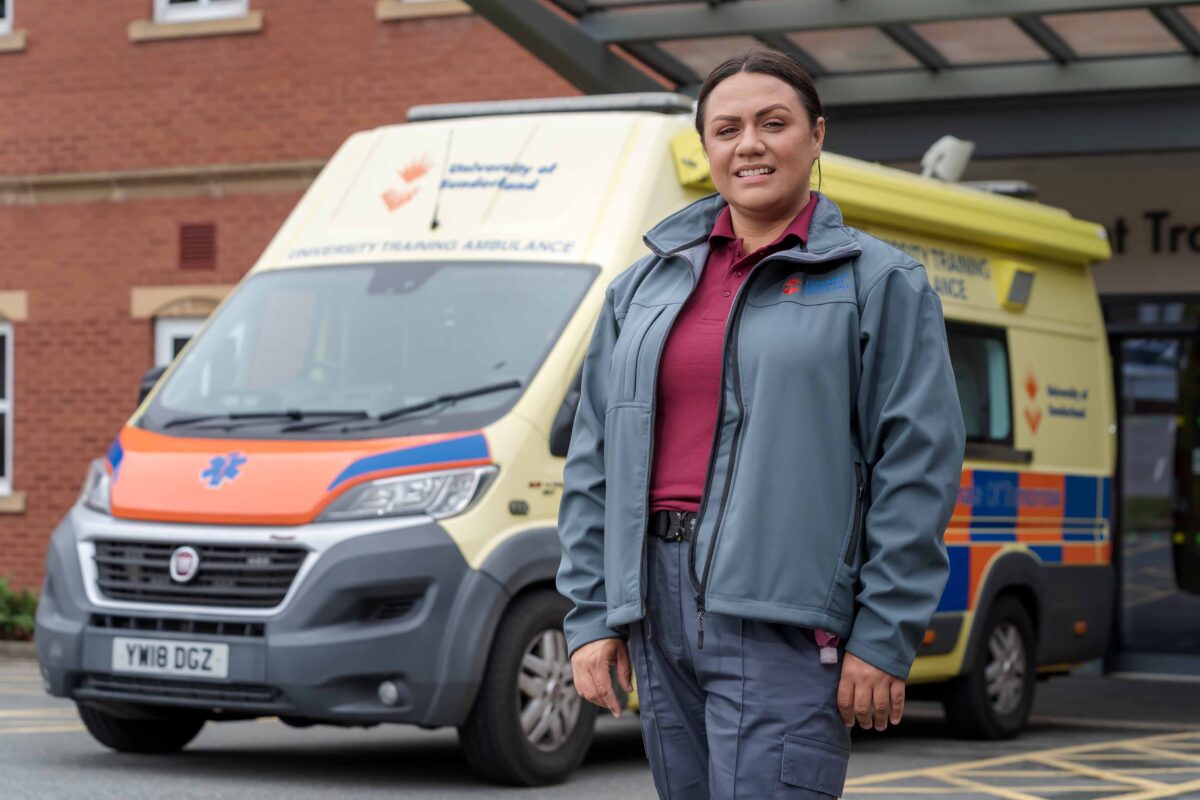How student paramedic put training into action to save a man’s life

A University of Sunderland(@sunderlanduni) student paramedic has put her life-saving training into use after a man suffered a heart attack in a supermarket.
First year student Stacey Thain was out shopping with her partner and young son in Blyth when the man collapsed.
The 33-year-old said she just went into “auto-pilot” and knew she could use her training to help.
“He wasn’t moving, he was blue in the face, and breathing one breath every nine seconds,” Stacey, from Stakeford, explained.
“Another shopper had already called for an ambulance, so I started CPR then asked a first aider at the store if they had a defibrillator, which they did. He (first aider) asked everyone to stand back, and I used the defibrillator to shock the patient. Then I carried out CPR again before the ambulance crew arrived.
“I stepped away and tried to carry on with my shopping, which wasn’t easy given what had just happened. Then the paramedic called me while I was at the till, so I went back, and I saw that the patient was awake. He wanted to thank me, he held my hand and asked my name.
“The paramedic told me if I had not been there, it would’ve been a different outcome – that I saved the man’s life.”
Stacey only started her paramedic training at Sunderland in May but this experience has reaffirmed that she has chosen the right career path.
“I know I am doing what I am supposed to do,” Stacey said.
“I know I can handle a stressful real-life situation, putting every lesson I’ve been taught so far into action. It still hasn’t sunk in that I am the reason he is alive.”
Mark Willis, Associate Head of School for Nursing and Health Studies (Paramedic Practice Team) at the University of Sunderland, said:
“The University is very proud of Stacey in her immediate actions that no doubt directly saved the life of the patient, and this is testament to her commitment, dedication, professionalism and clinical standards that she has learned throughout her studies to date.”
The patient was taken to the Northumbria Specialist Emergency Care Hospital in Cramlington.
Health advisor at the North East Ambulance Service, Bethany Hackers, said:
“Cardiac arrest can strike anybody at any time in any place, and every minute without CPR and defibrillation reduces the chance of survival by 10%. On average, we support around 16,000 callers to give CPR over the phone.
“When taking a 999 call, I asked the caller if the patient is breathing abnormally because this can mean the patient is going into cardiac arrest. In this instance, the student paramedic recognised the signs of cardiac arrest and needed little to no help with the basic life support advice, but I gave words of encouragement throughout the call. In these types of calls, it is always nerve-racking because someone’s life is immediately in danger. However, I did feel relieved that the student paramedic was there, and she very quickly put the intervention in place.”











Responses